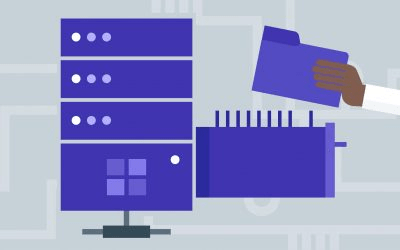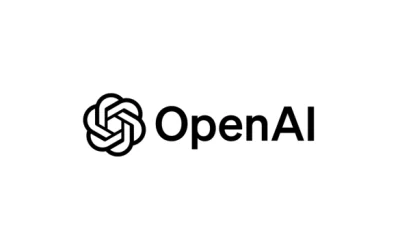Systems Operation and DevOps Engineering Fast Track (Bootcamp)
About this Course:
This bundle combines the System Operations on AWS and DevOps Engineering on AWS courses and is delivered in an accelerated timeframe, saving you time and money. In this course, you will learn how to configure, deploy, and manage operations on the AWS platform using system administration, cloud computing, and networking skills. Our expert instructors will provide industry techniques and best practices used by AWS system administrators, so you can efficiently utilize AWS tools and capabilities through the network management process. You will also learn how to use the most common DevOps patterns to develop, deploy, and maintain applications on AWS using the core principles of the DevOps methodology. You’ll gain important knowledge and be able to practice your skills through use cases, live labs, and hands-on exercises. At the end of this course, you will be able to develop, launch, and manage scalable, automated, and repeatable deployments of AWS systems to create a more efficient network
Course Goals/Skills:
-
- Use standard AWS infrastructure features such as Amazon Virtual Private Cloud (VPC), Amazon Elastic Compute Cloud (EC2), Elastic Load Balancing, and Auto Scaling from the command line
- Use AWS CloudFormation and other automation technologies to produce stacks of AWS resources that can be deployed in an automated, repeatable fashion
- Build functioning virtual private networks with Amazon VPC from the ground up using the AWS Management Console
- Deploy Amazon EC2 instances using command line calls and troubleshoot the most common problems with instances
- Monitor the health of Amazon EC2 instances and other AWS services
- Manage user identity, AWS permissions, and security in the cloud
- Manage resource consumption in an AWS account using tools such as Amazon CloudWatch, tagging, and Trusted Advisor
- Select and implement the best strategy for creating reusable Amazon EC2 instances
- Configure a set of Amazon EC2 instances that launch behind a load balancer, with the system scaling up and down in response to demand
- Edit and troubleshoot a basic AWS CloudFormation stack definition
- Use the principal concepts and practices behind the DevOps methodology
- Design and implement an infrastructure on AWS that supports one or more DevOps development projects
- Use AWS CloudFormation and AWS OpsWorks to deploy the infrastructure necessary to create development, test, and production environments for a software development project
- Use AWS CodeCommit and understand the array of options for enabling a Continuous Integration environment on AWS
- Use AWS CodePipeline to design and implement a Continuous Integration and Delivery pipeline on AWS
- Implement several common Continuous Deployment use cases using AWS technologies, including blue/green deployment and A/B testing
- Distinguish between the array of application deployment technologies available on AWS (including AWS CodeDeploy, AWS Opsworks, AWS Elastic Beanstalk, Amazon EC2 Container Service, and Amazon EC2 Container Registry), and decide which technology best fits a given scenario
- Fine-tune the applications you deliver on AWS for high performance and use AWS tools and technologies to monitor your application and environment for potential issues
Audience:
- Systems administrators, operations managers, and individuals responsible for supporting operations on the AWS platform
Course Format:
 |  |
|---|---|
Присъствен (Classroom) Курс в Учебната ни зала или В Офис на Клиент | Онлайн (Online/Virtual) Курс във виртуална зала с инструктор |
Course Language Option:
 |  |
|---|---|
Български (Bulgarian) | Английски (English) |
You can choose the language in which the training will be conducted – Bulgarian or English. All our instructors are fluent in English.
Student Guides:
The training materials are available in electronic format. They can be used online / offline on any device. Lifetime access.
Lab Environment:
Each student has their own lab environment where the exercises are conducted, part of the course. You do not need to install software on a computer or special hardware requirements.
Participants in a face-to-face format in our Training Center have an individual computer during the training.
At Course Completion:
 |  |
|---|---|
Lifetime Access - Video Archive 24/7 | Certificate of Course Completion |
Lifetime access to a video archive with recording of each individual lecture.
Official internationally recognized certificate for completed training course.
Course Duration:
- 5 working days (09:00 – 17:00)
or - 40 hours training (theory and practice) in non-working hours lasting 4 weeks
Saturday and Sunday 10:00 – 14:00, 14:00 – 18:00, 18:00 – 22:00
Monday and Wednesday 19:00 – 23:00
Tuesday and Thursday 19:00 – 23:00
Payments:
An application for an invoice is accepted at the time of enrollment in the respective course.
An invoice is issued within 7 days of confirming the payment.
Next Class:
For more information, use the contact format. We will contact you to confirm the data.
Prerequisites:
-
- Working knowledge of one or more high-level programming languages (C#, Java, PHP, Ruby, Python, etc.)
- Working knowledge of systems administration or software development
- Familiarity with cloud computing concepts
- Some experience with maintaining operating systems at the command line (shell scripting in Linux environments, cmd or PowerShell in Windows)
- Basic knowledge of networking protocols (TCP/IP, HTTP)
- Intermediate knowledge of administering Linux or Windows systems at the command-line level
- Working experience with AWS using both the AWS Management Console and the AWS Command Line Interface (AWS CLI)
The course prepares for the following certification levels:
-
- AWS Certified SysOps Administrator – Associate





